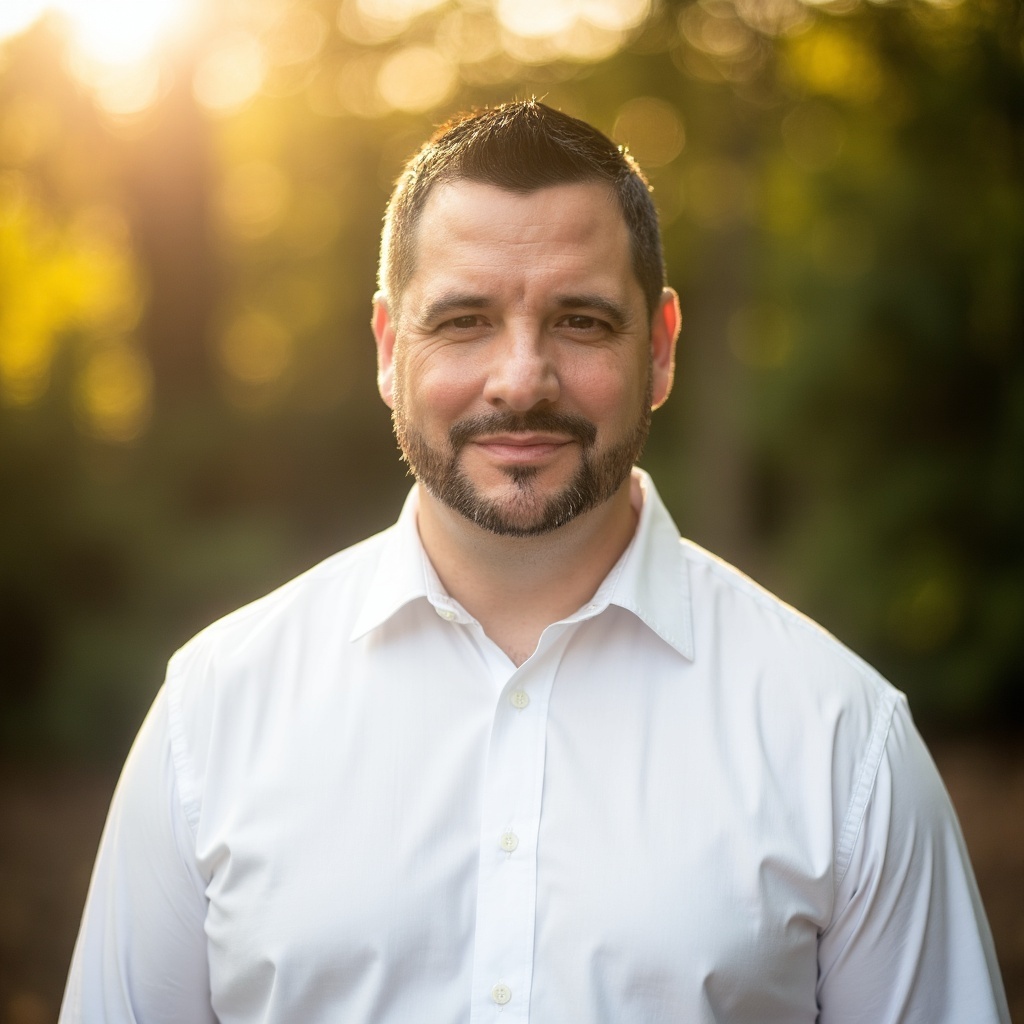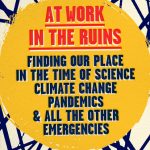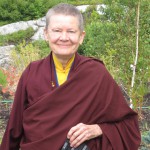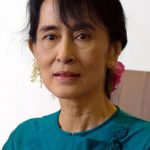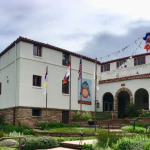Friday
A World Built on Pain: The Call for Healing and Change
By George Cassidy Payne
We live in a world where systems of power and dominance are designed to destroy the very planet that sustains us. These systems, though old in origin, have become more visible than ever before. They are built on extraction, exploitation, and a blind pursuit of progress that disregards the balance of life on Earth. Mother Earth is suffering under the weight of human-made unsustainable practices.
As Thich Nhat Hanh, a renowned teacher of peace and mindfulness, has often said, our connection to the Earth is not some abstract concept but something profound and immediate. To love the Earth is to love ourselves because we are intricately woven into the fabric of life. Yet, despite this deep connection, the structures of our society continue to foster destruction. Economic systems prioritize growth, accumulation, and exploitation, often at the cost of the environment and all of its creatures. The question we must ask is: where does this path lead us? Will our desire for control and comfort continue to erode the very systems upon which we depend?
Civilization, as we know it, is unsustainable. The rise of agriculture over 10,000 years ago marked the beginning of a trajectory where humanity’s relationship with nature became one of domination. We have seen entire species wiped out and ecosystems decimated. Today, 90% of fish populations are depleted, and 80% of old-growth forests have been destroyed. This is the legacy of human progress. We’ve created systems that exploit nature, driven by a desire to conquer and control. But at what cost?
The violence inflicted upon the Earth is not just physical; it’s linguistic and ideological. The discourse surrounding nature and sustainability has been shaped by political and economic forces that treat the natural world as something to be harvested, not a living community to be nurtured. We are not separate from nature; we are part of it. Yet, in our arrogance, we act as though we are above it, consuming without consequence. The truth is clear: without nature, we cease to exist. The buffalo skulls scattered across the Plains are a haunting reminder of what happens when we push too far, too fast, and too greedily.
Our ego has placed itself in direct opposition to the ecological system that sustains all life. The needs of nature must come before the needs of economic systems, but we continue to prioritize growth over balance, and consumption over care. This is a profound injustice — not only to the Earth but to all the creatures that depend on her.
We are dealing with pathological systems — economic, political, and social structures that are broken and destructive by design. These systems perpetuate ecological collapse, social inequality, and environmental degradation. The damage they cause is not an accident; it is the logical outcome of the values that drive them. These are not systems that can be tweaked or reformed; they need to be re-envisioned.
To create a world that is just and sustainable, we must re-imagine power, ecology, and healing. This requires a radical shift — a transformation in how we relate to one another, the Earth, and ourselves.
Reenvisioning Power
Power, as we know it, is often associated with domination, control, and exploitation. We see this in the way political, economic, and social structures perpetuate inequality and environmental harm. These hierarchies place certain groups — usually those with wealth and technological advantage — above others, including the natural world.
True power lies in interconnection, reciprocity, and mutual respect. It arises when we recognize our interconnectedness with all life. Gandhi’s principle of non-cooperation with everything humiliating points us toward an alternative vision of power — one that does not dominate or subjugate but works in harmony with the Earth and one another. Power, in this sense, is not something to be hoarded or controlled. It’s something to be shared, cultivated, and used responsibly for the collective well-being of all.
Reenvisioning Ecology
Ecology, in its current treatment, is often viewed through a narrow lens: nature as something to be exploited, commodified, and used for human gain. We speak of nature as “resources” to be extracted, “capital” to be managed. This extractive relationship has brought us to the brink of ecological collapse — biodiversity loss, deforestation, ocean acidification, and climate change are just a few of the destructive forces at play.
A new ecological vision is required — one that sees nature not as a separate entity to be controlled but as a living, breathing community with which we share space. It’s a worldview that recognizes the sacredness of all life and understands that human flourishing is tied to the health of ecosystems. In this vision, our relationship with the Earth becomes one of stewardship, reciprocity, and respect, grounded in the understanding that the health of the planet directly influences the well-being of all species, including ourselves.
To heal the planet, we must move beyond the extractive model of exploitation and embrace a more holistic, regenerative approach that centers on sustainability, biodiversity, and the restoration of natural cycles.
Reenvisioning Healing
Healing is often seen as a personal journey — a process of mending broken bodies or minds. But true healing extends beyond the individual. It encompasses communities, ecosystems, and the Earth itself. Healing involves confronting the deep wounds caused by centuries of exploitation, oppression, and violence. It requires reconciliation — not just between people but between humanity and the Earth.
Healing begins by acknowledging the trauma caused by our systems — systems that perpetuate environmental destruction, social inequality, and violence. It involves the work of repair, restoration, and regeneration. Just as individuals must heal from their wounds, societies and ecosystems must heal from the violence of extraction, colonization, and environmental degradation.
This process must also be inclusive, recognizing the voices and needs of marginalized communities — whose struggles are often intertwined with the environmental crisis. Communities of color, indigenous peoples, and low-income populations bear the brunt of both social injustice and ecological harm. Their healing is integral to the broader healing of the world.
The Power of Music and Local Action
One of the most powerful tools in this journey toward a nonviolent world is music. Music transcends barriers and speaks directly to the heart. In the fight for social and ecological justice, music serves as a powerful tool for expression, healing, and resistance. We must give voice to those whose stories have been silenced by the dominant narrative of violence and exploitation. Music becomes an act of resistance, a means of resisting the forces that seek to divide us and disconnect us from one another and the Earth.
However, music alone is not enough. We must also recognize the importance of local action. While large-scale movements are necessary, it’s the everyday actions, rooted in communities and local networks, that lay the foundation for lasting transformation. These small, collective actions have the potential to create a ripple effect — a nonviolent contagion that spreads from the grassroots to the global.
Challenging the Myth of Military Effectiveness
One of the most enduring myths that sustain these destructive systems is the myth of military effectiveness — the belief that military power is the ultimate means of achieving peace and security. But the truth is, that violence breeds more violence, and military solutions often exacerbate the very crises they are meant to resolve. Revolution does not always have to be violent. We can challenge this myth by demonstrating alternative forms of power — forms grounded in nonviolence, compassion, and cooperation.
True power, as Hannah Arendt wisely observed, is not violence; it is the ability to act in concert with others toward a common goal. Power lies in collective action, solidarity, and the strength of a community united in nonviolent resistance.
Contemporary Faith-Based Activism
Faith-based activism offers another lens through which to view the transformative potential of nonviolence. Rooted in compassion, justice, and a deep sense of moral responsibility, faith-based movements have often been at the forefront of social change. From the civil rights movement to climate justice, faith communities have played a crucial role in challenging injustice and advocating for a more sustainable world.
As we work to build a nonviolent, sustainable future, we must look to these faith-based activists who are mapping a nonviolent contagion — a global network of compassion, justice, and solidarity. This movement is grounded in the belief that true peace can only be achieved when all beings are respected and honored.
Conclusion
We stand at a critical moment in human history. The systems that govern our lives are broken, and the Earth cries out for healing. The path we take now will determine the future of our planet and all the life it sustains. The time for change is now. But this change must come from within. We must act out of love — for the Earth, for one another, and future generations. Only through radical transformation — grounded in nonviolence, respect for nature, and collective action — will we begin to heal the world and ourselves.
The change we need cannot come from the same systems that created the problem. We must, as Gandhi said, “be the change we wish to see in the world.”
***
George Cassidy Payne is a writer, philosopher, and advocate based in Rochester, NY. His work delves into themes of spirituality, social justice, philosophy, and the human condition. Known for his introspective essays, evocative poetry, and thought-provoking commentary, George contributes to various publications and platforms, offering a distinctive perspective on contemporary issues and timeless questions. He lives and works as a counselor in Irondequoit, NY.
Entries filed under Opinion Pieces
At Work in the Ruins: Finding Our Place in the Time of Science, Climate Change, Pandemics & All the Other Emergencies by Dougald Hine – HIGHLIGHT
A Touching the Earth Collective Book Review by Gregory Webster Dougald Hine has a knack for timely interventions. In 2009 he collaborated with Paul Kingsnorth to write Uncivilisation, the manifesto that launched the Dark Mountain Project – soon to be described by the New York Times as ... continuePosted March 7, 2023 by Jillian_Johnson
EFT Tapping and Mindful Eating: New Partners at the Table – HIGHLIGHT
Mindful Eating – Joining Heaven and Earth at the Meal Table Review by Lynn Rossy, Ph.D. and Reposted from Tasting Mindfulness As many of you know, I have taught mindful eating through a class called Eat for Life for 15 years, so I am familiar with the topic. ... continuePosted January 6, 2023 by Jillian_Johnson
Letter from Ani Pema Chödrön – HIGHLIGHT
Dear Shambhala Community- This is a letter that Ani Pema Chödrön sent recently to the Shambhala Board and the Acharyas and now wishes to share it with the community. Warmest best wishes, Glenna Olmsted, Executive Assistant to Pema Chödrön January 14, 2020 Dear Acharyas and Shambhala Board Members: I send New Year’s ... continuePosted January 16, 2020 by archives-staff
David Schneider Steps Back from the role of Acharya – HIGHLIGHT
Former acharya David Schneider has requested the Shambhala Times to publish his letter describing why he has given back the title of acharya. Per leggere questo articolo in italiano, per favore clicca qui. Pour lire cet article en français, cliquez ici. Este artículo ha sido traducido al español aquí. To ... continuePosted January 14, 2020 by archives-staff
David Schneider deja su puesto de acharya
Queridos/as amigos/as de la sangha noble y comunidad Shambhala: Esta carta es para decir que, tras reflexionar seriamente, tengo pensado dejar el papel de acharya. Intento hacer las cosas de forma adecuada, así que he escrito una carta al Sákyong, porque fue la persona que me nombró. ... continuePosted January 14, 2020 by archives-staff
David Schneider quitte sa fonction d’Acharya
Chers amis, chères amies de la noble sangha et communauté Shambhala, J’écris ici pour vous dire qu’après mûre réflexion, j’ai l’intention de me retirer de mes fonctions d’acharya. Souhaitant faire les choses correctement, j’ai écrit une lettre au Sakyong, du fait que c’est lui qui m’a nommé à ce ... continuePosted January 14, 2020 by archives-staff
David Schneider tritt als Acharya zurück
Liebe Freundinnen und Freunde im noblen Sangha und in der Shambhala- Gemeinschaft, nach gründlicher Überlegung beabsichtige ich, als Acharya zurückzutreten. Um dies in aller Form zu tun, habe ich dem Sakyong einen Brief geschrieben, denn er war die Person, die mich zum Acharya ernannt hatte. Dieser Brief wie auch der ... continuePosted January 14, 2020 by archives-staff
David Schneider si ritira dal ruolo di Acharya
Cari amici nella nobile sangha e comunità Shambhala, Devo dire che dopo seria considerazione, intendo ritirarmi dal ruolo di acharya. Cercando di farlo in maniera adeguata, ho scritto una lettera al Sakyong, visto che è stato la persona che mi ha nominato. Quella lettera, come la decisione, ... continuePosted January 14, 2020 by archives-staff
Mother Burma, What is the Truth? – HIGHLIGHT
Photo courtesy of Wikimedia Commons By Larry Steele This week, Daw Aung San Suu Kyi, the heroine of Burmese democracy and leader of her multi-ethnic but majority-Buddhist nation, stood before the United Nations’ International Court of Justice to defend her country, now called Myanmar, against charges of genocide. Around ... continuePosted December 14, 2019 by archives-staff
Each Mindful Meal Is A Step Towards Sustainable Food For All – HIGHLIGHT
By “Jackie Writing Jackie” Photo by Ella Olsson Around the world, over 3 billion people are malnourished, and many more eat a poor quality diet. Sustainable food practices are essential in order to ensure an adequate supply of good quality, nourishing food for an ever expanding population. However, in ... continuePosted July 15, 2019 by archives-staff
Why save Marpa house? Why sell it? – HIGHLIGHT
By Lainie Logan To show support for saving Marpa House, add your comments below, pledge a conditional payment, or offer a friendly loan. Go online here to learn more https://www.futureofmarpahouse.com/who-we-are/ This is an opinion piece. I do not speak for the board of the non-profit Community of Marpa ... continuePosted July 10, 2019 by archives-staff
Quel avenir pour le trésor de Shambhala ?
par l’Acharya Judith Simmer-Brown (Paru sur le site de Shambhala Times Community News Magazine) En ces temps de profond bouleversement, alors que nous nous efforçons de restructurer l’ensemble de notre communauté et de notre pratique, j’aimerais apporter une perspective historique à nos réflexions. Il ne s’agit certainement pas ... continuePosted March 19, 2019 by archives-staff
Sopesar el futuro del tesoro de Shambhala
En estos días desoladores en que estamos comprometidos a rediseñar toda la estructura de nuestra comunidad y de la práctica, quería añadir un elemento que quizá proporcione una perspectiva histórica a nuestras consideraciones. Esto no significa de ninguna manera dictar lo que decidamos hacer, porque esos ... continuePosted March 13, 2019 by luz_rodriguez
Considering the Future of the Treasure of Shambhala – HIGHLIGHT
Este artículo ha sido traducido al español aqui. Pour lire cet article en français, cliquez ici. In these heartbreaking days, while we are committed to redesign the entire structure of our community and practice, I wanted to add an element that may provide some historical perspective for our ... continuePosted March 12, 2019 by archives-staff
Lettre de Lady Diana Mukpo
Office de la Druk Sakyong Wangmo Chers membres de la communauté Shambhala, C’est avec le cœur gros que je vous écris aujourd’hui. Nous vivons tous un moment extrêmement douloureux actuellement. Cependant, à bien des égards, je pense que la situation dans laquelle nous nous trouvons en tant que ... continuePosted February 24, 2019 by archives-staff
![]() RSS feed for the Opinion Pieces category
RSS feed for the Opinion Pieces category
View all posts from authors in Opinion Pieces: jillian_johnson




